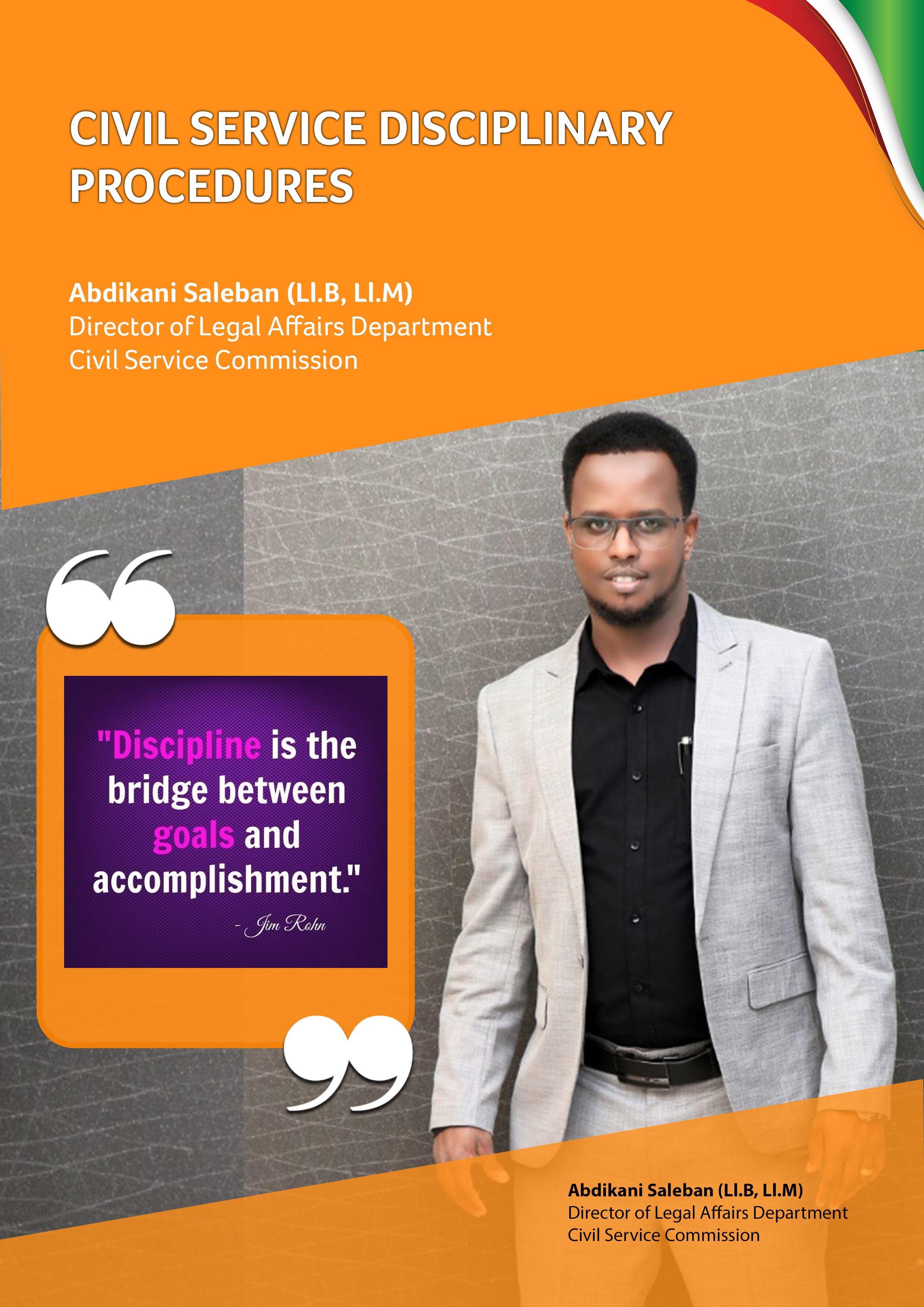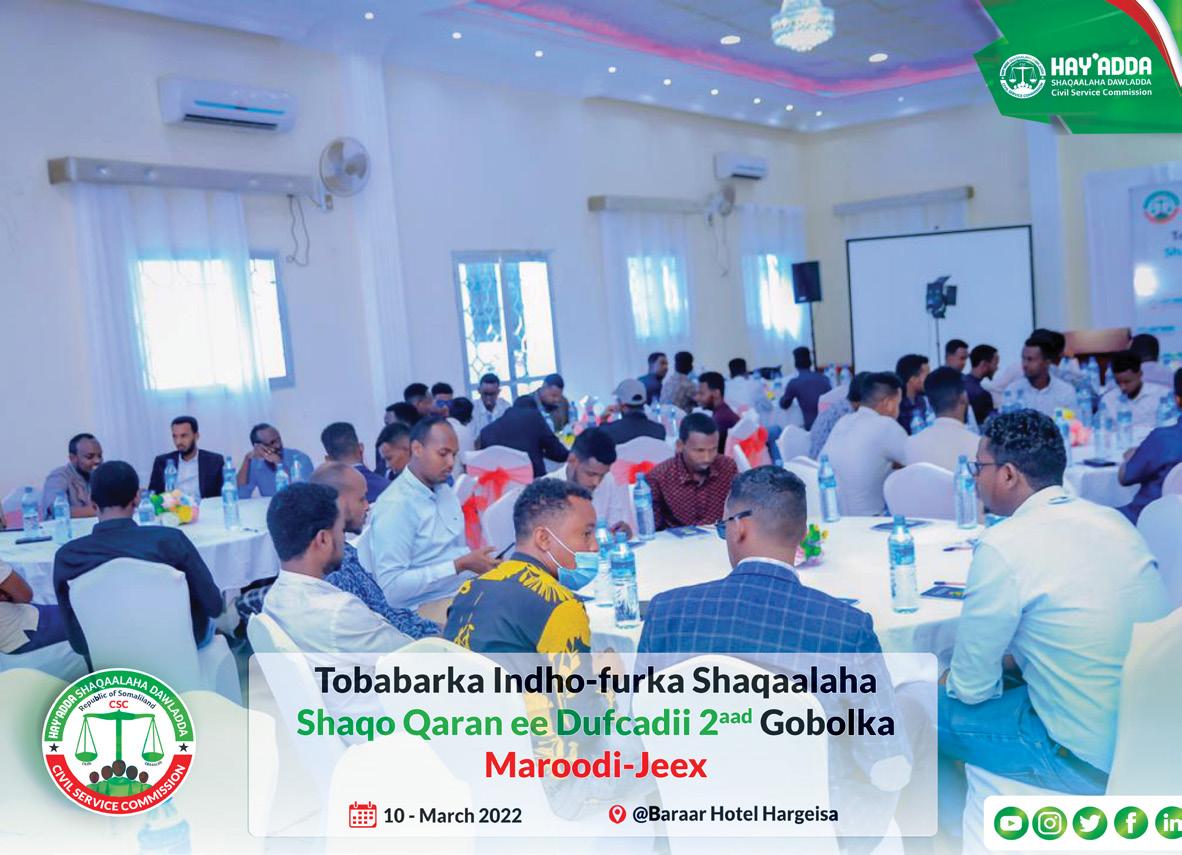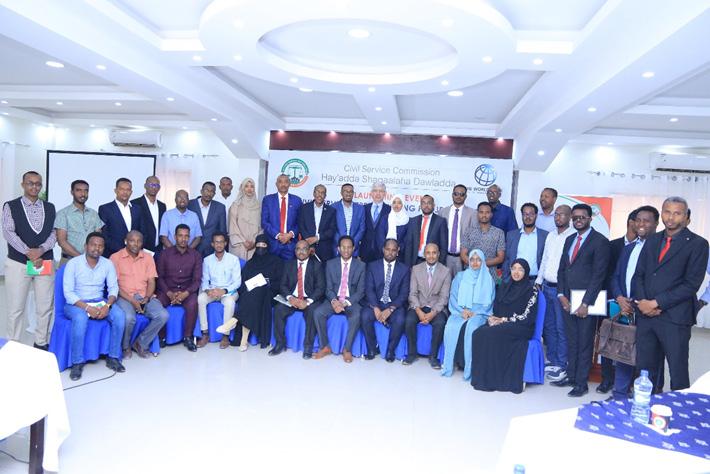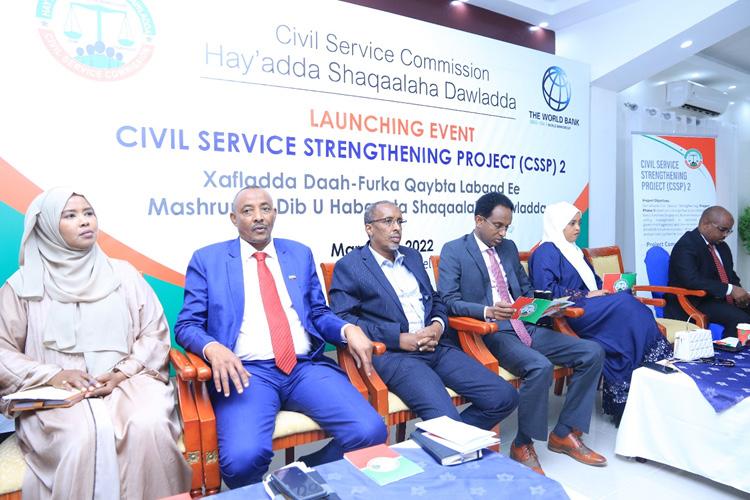
5 minute read
Civil Service Disciplinary
Civil Service Disciplinary Procedures
Disciplinary control in the public service is one of the Public Service Commission’s functions as stipulated under Article (53) of the newly amended Civil Service Law (Law No.97/2022). Civil servants are expected to maintain integrity and uphold the dignity of the office to which they are appointed. It is therefore imperative that every civil servant adheres to the rules of conduct and ethics as laid out in the law. While exercising the powers of disciplinary control, the Commission is alert to the fundamental principles of natural justice. We better consider that discipline in the service should be viewed not only from the aspect of imposing a punishment against the officer or deterring other officers from committing similar misconducts but also, as a way of moulding and developing a positive attitude in the officer. The ultimate objective of discipline is to create a motivated and dedicated officer who upholds proper work ethics for optimal service delivery. The easiest way to uphold discipline is to emphasize on self-discipline, that is, the conscious deliberate decision to comply with what is expected. In this case, the Civil Service Commission is constitutionally mandated to exercise disciplinary control over civil servants appointed to hold offices in the civil service. To effectively deliver this function, the Commission developed the first Discipline Management Policy approved by presidential circular in August, 2019 to guide the process of handling disciplinary cases in the civil service. This Manual does not substitute the civil service regulations made by the Commission or any law made by Parliament as the case may be, but it is meant to guide the MDA’s disciplinary committees. The committees are therefore required to read the Manual alongside with the following documents:-
Advertisement
a. Somaliland Constitution b. Civil Service Commission Law, c. Civil Service Administrative Policies, Rules and Procedures and d. Code of Conduct e. Penal code f. General circulars issued by the Government from time to time. g. Any other law governing public service.
This Manual does not substitute the civil service regulations made by the Commission or any law made by Parliament as the case may be, but it is meant to guide the MDA’s disciplinary committees. The committees are therefore required to read the Manual alongside with the following documents:-
Scope
This Manual provides general guidelines and instruments to be used by the Commission, Ministries/State Departments and Agencies (MDA’s) in handling all discipline cases against civil servants.
Objectives
Under Article 113 of the Somaliland Constitution along with the Amended Civil Service Law and the civil service administrative policies, rules and procedures, the Commission is empowered to make regulations for better carrying out of its functions. The Commission has developed policies opted to regulate the civil service conducts including those that govern disciplinary control, powers to issue instructions and to prescribe instruments on disciplinary action. In an effort to enhance the processing and presentation of discipline cases, the Commission has revised the Manual for use by Ministries/State Departments.
The objectives are to:-
• Define discipline and understand its meaning in the context of the existing public service regulations. • Define standard procedures for uniformity in handling disciplinary cases. • Outline the steps in disciplinary procedures and processes. • Create understanding on the roles and
Civil Service Commission employed the 2nd batch of National Service
responsibilities of the Public Service
Commission and Authorized Officers in handling of the disciplinary cases. Further the manual provides guidelines on the following— • Proper framing of charges; • Investigation of cases; • Analysis and evaluation of cases; • Concluding and forward disciplinary charges in pursuance to the civil service rules and regulations
Guiding Principles
Disciplinary control is an integral part in the management of human resource in the civil service. It is intended to help and encourage civil servants to achieve and maintain standards of conduct, contribute to improved performance and productivity. It is based on principles of fairness as envisaged in the Constitution and other enabling legislations. Where applicable, other alternative intervention mechanisms need to be explored. The summary of the disciplinary process are as follows: Step one: Commence the process Step two Investigation: Establish facts Step three: Prepare for the disciplinary meeting Step four: The disciplinary meeting Step five: Outcome of the disciplinary meeting Step six: Decide the appropriate disciplinary action Step 7: Implement the disciplinary action
The detailed process will be published in the next issue. Abdikani Saleban (Ll.B, Ll.M) Director of Legal Affairs Department
The Somaliland Civil Service Commission has officially employed 737 members of the second batch graduates from the National Service
who will be engaged at the Ministries, Departments and Agencies of the Somaliland government. This is part of the national agenda reducing the unemployment rate in the country under the leadership of the Somaliland President.
The new civil servants are now officially registered at the Civil Service Commission and deployed to the Ministries and government agencies where they will be working at.

Civil Service Strengthening Project (CSSP II) Kick-off Held in Hargeisa

An official launching ceremony was held for the start of CSSP II at Ambassador Hotel in Hargeisa attended by government officials, key civil servants, World Bank Team and others.
The CSC Chairman, Minister of Employment, World Bank Task Team Leader and other officials addressed the participants during the event appreciating the successful achievement of CSSP I and the efforts made by the government and the support from the World Bank have resulted the full implementation of the project. management activity that involves preparing the team members and the client team on expectations, communications, and collaboration for the project.

Towards the end of the event, the Project Coordination Unit (PCU) members have been awarded certificates of appreciation by the government for their outstanding performance and effective contribution towards the implementation of CSSP 1. The government also awarded the World Bank officials for providing technical support for the project.
The project kickoff is part of the project initiation phase of the project lifecycle. It’s a critical project








